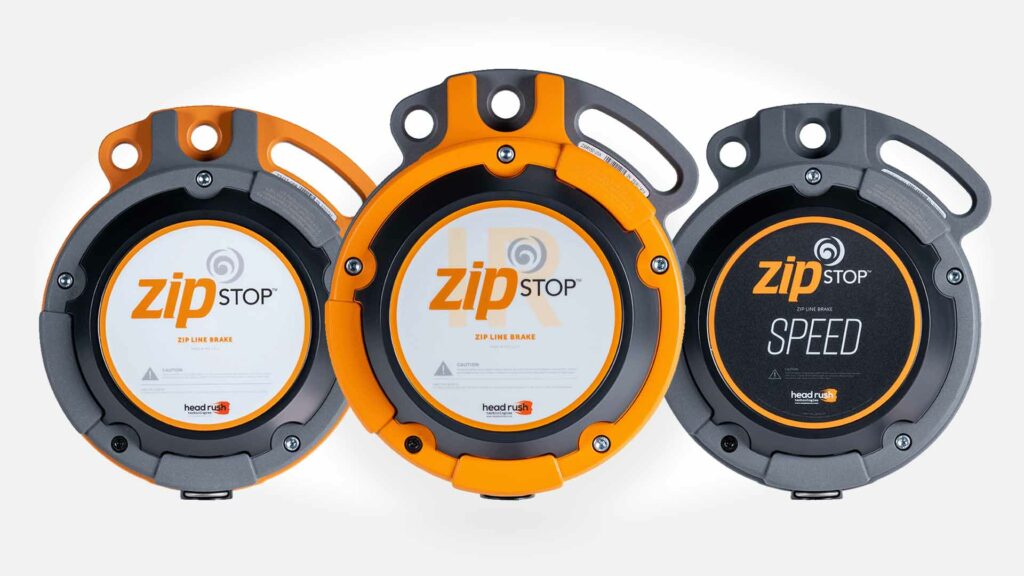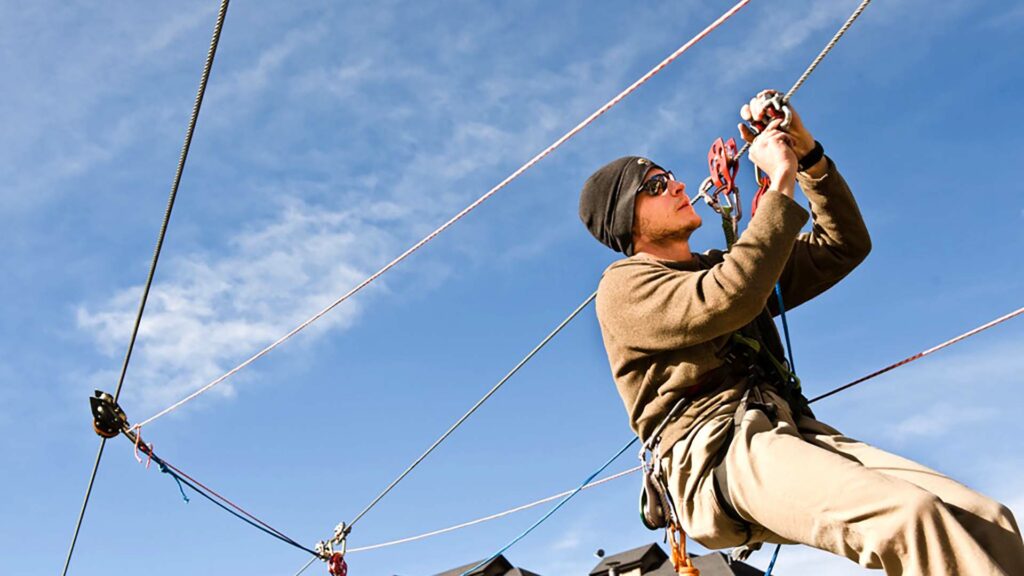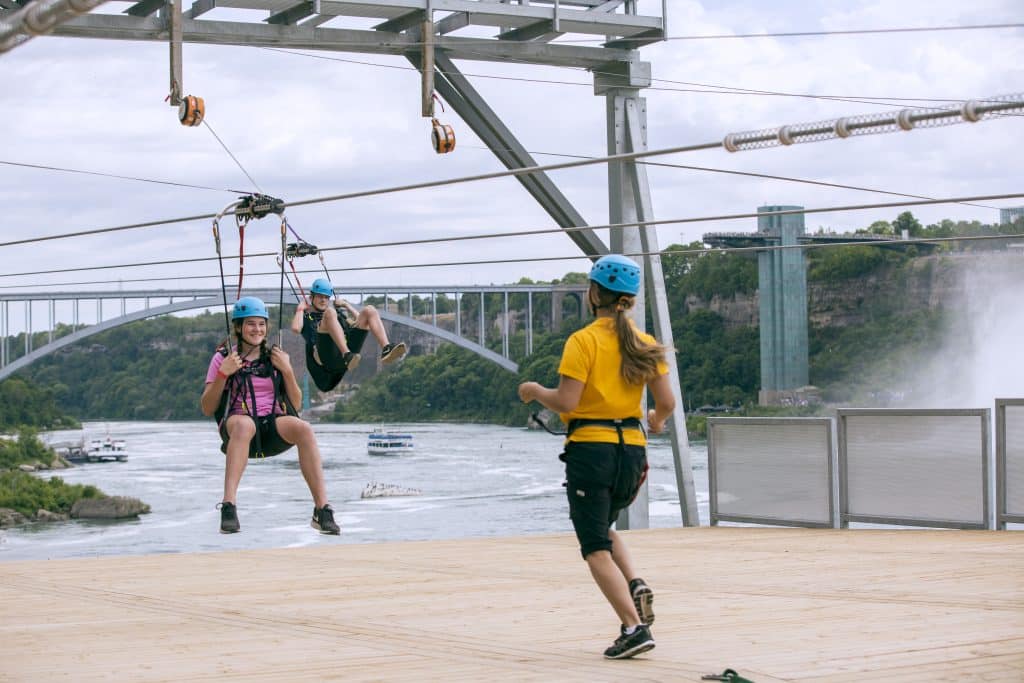Head Rush Technologies is known for engineering innovative devices for the climbing and adventure industries. Head Rush's research and development process was designed with the goal of solving problems inherent in the operations of climbing and adventure experience providers. Head Rush's new product development strategy focuses on two main areas: enhancing the user experience and improving business operations for facility operators. Â Head Rush's new video series goes behind the scenes of this unique research and development process through interviews with members of the engineering team. The video below is the in the first video in the series. It highlights Head Rush's outdoor culture and gives some insight into the unique product development process.
This new product development process has created new cutting-edge products such as the LightSpeed Zip Line Trolleys and the TRUBLUE Speed Auto Belay. The LightSpeed Zip Line Trolleys have numerous benefits that set them apart from older generations of zip line trolleys, but they are best known for their compatibility with passive braking. Other zip line trolleys on the market were not designed with passive breaking in mind. This resulted in zip line operators having to frequently replace their zip line trolleys. Head Rush saw this problem and came up with the ingenious design of the LightSpeed Family of Trolleys that dramatically improved its durability.
The same commitment to quality resulted in the creation of the TRUBLUE Speed Auto Belay. The TRUBLUE Speed is has a faster retraction speed, which is specifically designed for speed climbing and uses the same magnetic braking technology as the original TRUBLUE. That means that you get the same frictionless braking as well as the other benefits of an auto belay specifically designed for speed climbing. One of the problems specific to speed climbing that Head Rush's Engineers focused on while designing the TRUBLUE Speed was optimizing retraction force with slack uptake. A speed climbing auto belay needs to be able to keep up with the fast ascent of a speed climber, without pulling them up the route and artificially improving their performance. The design of the TRUBLUE Speed addresses this problem with a retraction speed that is suitable for future world records and also exerts a minimum force on the climber.
Video Transcription - Engineering Adventure Behind the Scenes Episode 1
At Head Rush we, being a smaller company, we all have a bunch of, we have a great engineering team, and everyone has really strong skill sets, and I'm very lucky to be able to work for a company that supports people going climbing. We need go out in the field and actually test, alright we've got this product basically ready to go, let's go put it on a zip line. Let's go actually jump off it. I need this data. Rather than sending it off to a lab or sending off somewhere else, you go out as the engineer. You've designed it. Now you go and test it then, you bring it back, make revisions and you move forward with that design, of like, that worked really well. Let's keep moving forward.
That's why I really believe in the sport and I believe in guiding, and I believe in what we do here. I think the big thing is that all the engineers here we're all climbers, we're all skiers, we're all passionate about being outside and the devices we make are stuff that we actually use. We want to make stuff that's really really high quality, that's really really safe, because we really really care about the community and we just want to see people having fun on the stuff that we make and we want to have fun on the stuff that we make. That's why we're here that's why we're a part of this company that we're very passionate about the outdoor world.



